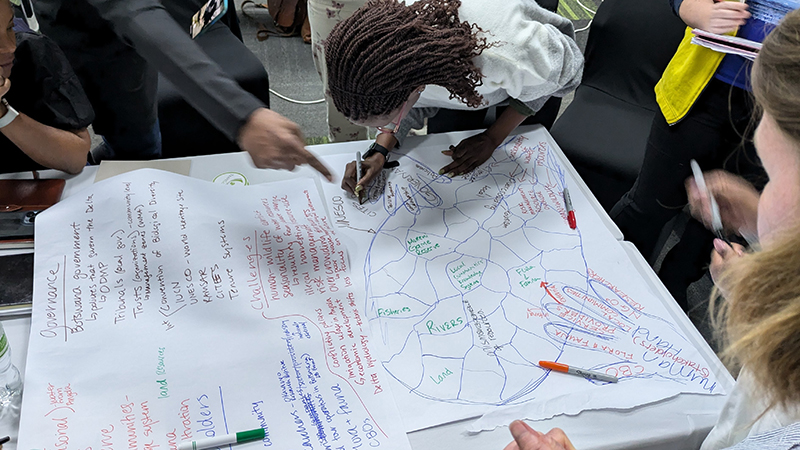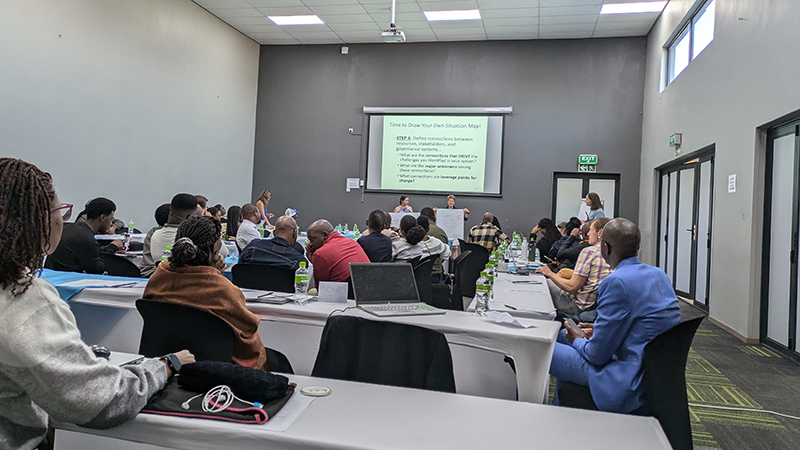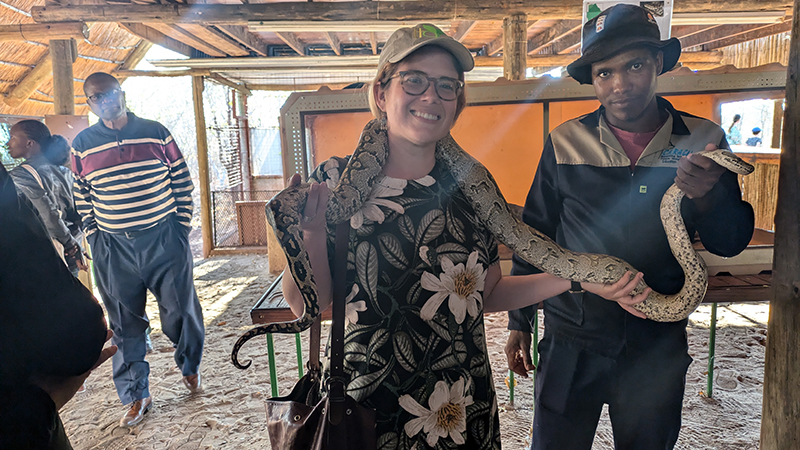Posted: 7/19/2024
Meredith joins African collaboration through EPSCoR

By Ronica Stromberg
Gwendŵr Meredith took part as the first University of Nebraska professor in an African collaboration dating to the 1990s and meeting in Botswana this year, May 27-31.
Meredith and Brian Chaffin, a University of Montana-Missoula professor working with her on the Nebraska-Montana EPSCoR project, led a session at the INSAKA Consortium’s International Symposium on Resilience and Sustainability of Social-Ecological Systems. Their session, “Resilience and Social-Ecological Systems," discussed how resilience might be defined and related concepts be used in managing places where humans and nature interact.
"From those discussions, I would say it was a very varied understanding of those terms across the board, but it was a good discussion," Meredith said.
Attendees in the session drew "situation maps" with markers and butcher paper to represent how they viewed the social-ecological system in an African region of their choosing. Meredith’s subgroup drew a dragonfly wing to represent the Okavango Delta and drew hands on the sides to represent human influence.
The annual INSAKA symposium focuses on the Kavango–Zambezi region where Angola, Botswana, Namibia, Zambia and Zimbabwe converge. The African professors, students and wildlife and land managers attending the symposium come from these nations. Universities involved in the consortium are University of Botswana, University of the Free State, Copper Belt University, University of Namibia, IIE MSA, Clemson University and University of Montana-Missoula.
According to the 2024 program, the symposium is intended to foster an intellectual platform and network to address complex challenges and topics. Insaka is an African term for a place where people gather to share their knowledge and experiences.
Sessions revolved around how to get communities involved in conservation, how to mitigate issues related to human-wildlife conflict and how to nest science within existing indigenous knowledge systems.

Meredith said managing resources like migratory animals in these African nations can be complicated by differing laws and protections. As an example, she stated elephants may cross from one nation to the next but some nations permit hunting of them while others don’t. She said she viewed the symposium as successful in bringing people together to exchange information.
"I think that's helpful in a transboundary conservation situation to just be able to compare notes and meet and know what each other's doing and how that resource is across boundaries," she said.
She said Chaffin and she were able to relay resilience research from the EPSCoR project at the symposium, and the Africans expressed interest in working with them on future funding opportunities.
"I think the conference was really good for networking with those individuals, getting on their radar, and they're eager to work with us. Us being just like the U.S. generally," she said.
A week after taking part in the symposium, she was invited to serve on a related committee.
"I think it's stuff like that that gets developed over time of knowing each other and talking to each other," she said.
